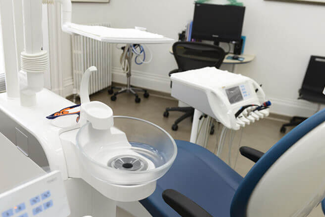Tooth loss is never a good look. Perhaps if you’ve lost a tooth at the back of your mouth, you’re thinking you can get by, after all it doesn’t affect your smile. Except, it will, eventually. When untreated, tooth loss causes your jawbone to degenerate, which puts neighbouring teeth at greater risk of damage and of falling out. That triggers a vicious cycle of tooth loss and before you know it, your smile is full of gaps, your cheeks are sunken and your jawbone is diminished. So, whether you have lost one tooth or several, it is worth investing in dental implants in Harley Street.
 At Harley Street Dental Clinic, we’ve seen countless patients walk away with a brand-new smile and renewed confidence in their oral function after getting dental implants in Harley Street.
At Harley Street Dental Clinic, we’ve seen countless patients walk away with a brand-new smile and renewed confidence in their oral function after getting dental implants in Harley Street.
So how does the whole process work?
Getting started
Your first step should be to schedule an appointment with one of our implant dentists. You will have a thorough examination of your mouth, including x-rays, as well as a good chat about your dental and medical history. The latter is just as important as the examination of your teeth and gums as certain medical and dental conditions can prevent you from getting dental implants in Harley Street straight away.
Gum disease needs to be resolved, as do conditions that affect healing, such as uncontrolled diabetes or heart disease. If your jawbone has deteriorated considerably, you may also need some preparatory work to strengthen it.
The implant procedure
When you are ready for your dental implants in Harley Street, we will carry out some minor oral surgery to place your implants directly into your jawbone. This anchors them securely in place as new bone tissue will grow around them. This is always carried out under local anaesthetic, but dental sedation is also available if you are feeling especially anxious. After a period of healing, we will attach your replacement crowns.
Aftercare
Dental implants in Harley Street, as elsewhere, do not require any special care. You should treat them as you would your natural teeth, with twice-daily brushing and flossing, regular dental check-ups and hygienist deep cleans.
